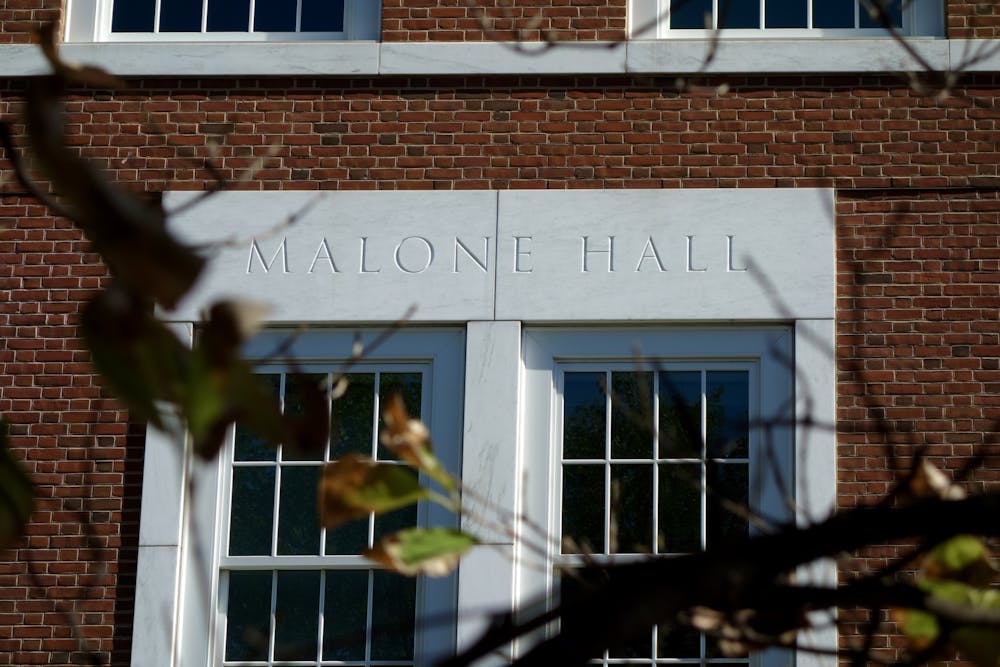On Oct. 27, the Whiting School of Engineering announced the selection of seven Amazon AI PhD Fellows. The program, initiated this year, provides $68 million in funding over two years to over 100 doctoral students at nine universities including Hopkins. Students are first nominated internally, and then apply to the fellowship. Along with monetary funding, fellows are issued Amazon cloud-computing credits to support their research and dedicated mentorship with an Amazon senior scientist.
Amandeep Kumar is a second-year doctoral student in the Electrical and Computer Engineering (ECE) Department working in the group of Vishal Patel. His research in deep learning and image processing began in his undergraduate studies, where he worked to classify traffic lights for self-driving car technology. His current research is in real-time video generation.
“Right now, there are a lot of [video generation] models in the market… but the problem [is that] the models which are present in the open market are not really good because of the data and the memory size problem,” Kumar began. “I'm trying to solve that problem, to have a better quality of generation as well as real-time generation.”
In order to improve the quality and speed of generation, Kumar plans to reduce the complexity of diffusion models used in video generation and use Nvidia’s CUDA toolkit to program a more streamlined video generation and editing pipeline. Crucially, he also looks to introduce correct physics, including momentum, gravity and elasticity, into AI-generated videos, whose subjects often suffer from unnatural movements.
Caio Deberaldini Netto is a third-year PhD student in the Applied Math and Statistics (AMS) department at Hopkins. His research focuses on the intersection between machine learning theory, graph neural networks and geometry. Specifically, he works on understanding the transferability and generalizability of neural networks through manifold learning and signal processing.
“I’m essentially trying to understand [AI] models under a mathematical background… such that we can make those models more reliable, robust and efficient,” Netto said. “I think we can make those models more transparent… Then people can use them without being scared.”
Jack Zhang, who completed his undergraduate studies at Hopkins, is now a third-year PhD student in the Computer Science Department and is also affiliated with the Center for Language and Speech Processing (CLSP).
“My research mainly centers on reason and alignment of large language models… with a particular focus on safety and robustness,” Zhang said. “We need to ensure the models are aligned to human values and intentions.”
Specifically, Zhang is researching multi-agent reinforcement learning methods that train AI to be both more helpful and more harmless.
“[An AI] should be as helpful as possible on general queries, but maintain harmlessness… There's a fine line… between what can and cannot be produced by the model,” Zhang said. “My research is proposing training methodologies that can enable better adversarial robustness against attacks. So now, [we can be] more confident that the model will behave as intended… and harder to jailbreak.”
Zhang cites his undergraduate studies at Hopkins as a foundational experience for his current work, especially regarding the widespread culture of starting research as an undergraduate.
He emphasized the collaborative nature of research at Hopkins as a crucial factor in his decision to stay at Hopkins after receiving his undergraduate degree.
“There's a lot of interdisciplinary, center-based initiatives at Hopkins... For example, I'm in the CLSP, which involves both the Computer Science (CS) and ECE departments, and there could also be some Biomedical Engineering (BME) people involved as well. And we’re all affiliated with the new Data Science Artificial Intelligence Institute. That creates a cluster of people working on AI from different departments – AMS, CS, ECE, BME – a lot of people from different backgrounds working together… is quite an amazing thing to have.”
According to Zhang, the Amazon AI PhD Fellowship allows for flexibility and freedom in research topics without having to be encumbered by funding restrictions. This allows fellows to work on topics they find intellectually interesting and develop a more narrowly defined research focus.
Netto echoed similar sentiments about receiving the fellowship.
“I think it has a huge difference for sure, especially because I am an international student. Having the security [of] funding for two years… [allows me to] focus on research,” Netto said. “I also think that it helps my advisor a lot, because then… she has more money to hire more PhD students, and then our lab… can grow even more.”
Along with the aforementioned benefits, Kumar stressed the fellowship’s mentorship program as a promising factor in his development.
“It will really be good to listen to some perspectives from the industrial point of view, because right now we are in an academic setting, and people think differently in industry,” Kumar said. “[As an academic,] you need to be very much aware about how people in industry think… how they bring the product.”





